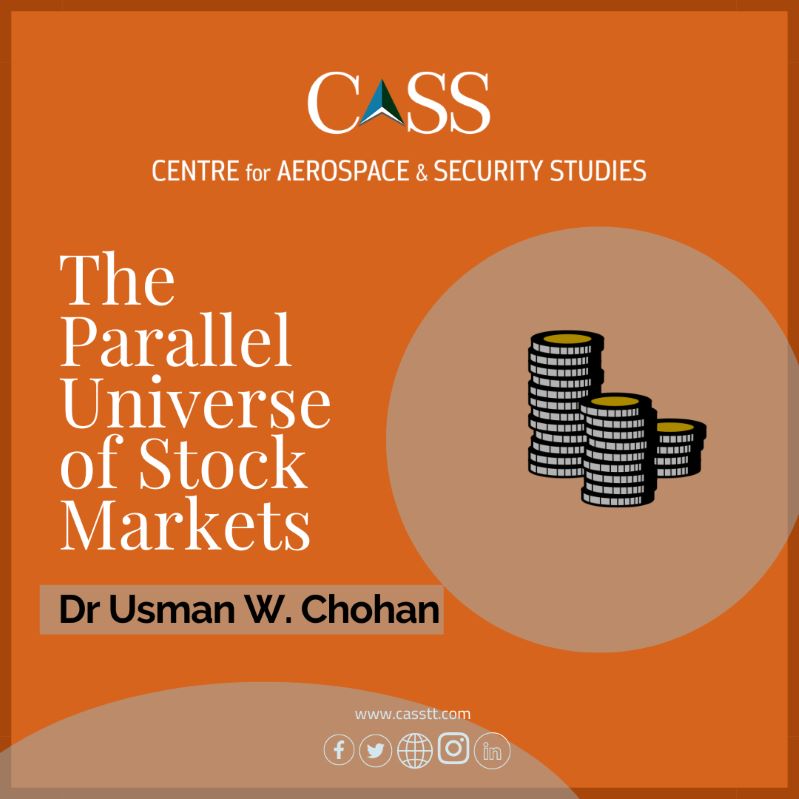It came as something of a shock that the S&P 500 index, a supposed bellwether of the American economy, attained a level on June 8th 2020 that was so high it effectively erased any sign of the losses borne due to coronavirus (Covid-19) in earlier months.
In other words, the stock market had soared to such an extent that it had returned to a status before the rampant deaths of coronavirus, the concomitant paralysis of economic lockdown, and the breakdown of civil society following mass uprisings against American police brutality.
For die-hard believers in the financial markets, the “Free Market Taliban” as they might be called, the rising stock markets might suggest that there are really no problems in the United States, and that the virus has already fizzled away, a restive population has been calmed, and workers have a skip in their stride on their way back to the office.
Is this really the tone-deaf message that the stock markets intend to give? Are American cities really no longer smouldering from fires and teargas? Has the country with the highest number of coronavirus cases and deaths simply willed the virus out of existence?
What is this parallel universe in which the American stock market resides? Recent interviews with market gurus show many of them shrugging their shoulders with smirks of befuddlement. But the bizarro-world of American finance may in fact represent something much more nuanced. Three explanations can be posited for the resurgent markets, each of which is flimsy in its own manner.
The first and most straightforward is that recent data simply isn’t as horrific as analysts expected, and although this cannot explain the complete recouping of stock market losses, it harkens to the point that capitalists were yearning for any piece of news to jump back into the equity asset class.
One example of this was the recent US jobs report which observed a net increase of +2.5 million jobs instead of the dismal forecast of -8 million job losses. This naturally reflects the opening up of states at a time when coronavirus continues to rage and 100,000+ deaths have occurred in the US.
The second explanation is that the behemoth and outsized stimulus released by the Federal Reserve constitutes a cash infusion so large that financial institutions will be forced to spend it somehow, and will choose equities over the low (and negative) returns of bonds. Since they will have to find some avenue to spend the money conjured out of thin air, the equity markets are not representative of American reality but rather the need to do something with excess cash.
Naturally, the best use of that conjured cash would be in the pockets of the suffering masses who have been furloughed or laid off. But their wellbeing has been a priority for the Trump administration in nothing but rhetoric.
The third rationale is that the S&P 500 is no longer reflective of American life in any meaningful sense. 20% of the S&P is comprised of the five tech giants: Apple, Microsoft, Google (Alphabet), Amazon, and Facebook. These tech giants have been making a killing during the pandemic, delivering services that have not just continued but in fact grown during the lockdown.
These five giants thus have a disproportionate effect on the equity indices, and this hardly constitutes a microcosm of American life as much as it symbolizes the monopolization of American capital. The parallel universe in which American finance now dwells is as virtual as the companies that dominate the indices, bereft of any connection to raging protests, pandemic outbreaks, or the brutality of a police state.
On a final note, it is worth heeding the tension that persists at the level that the S&P has achieved, with some negative pressure since June 8th, based on sobering news from the Federal Reserve expecting a -6.5% contraction in the economy. That counter-point of sobriety is a thin strand that keeps American finance from fully residing in an entirely different universe.
The writer is the Director for Economics and National Affairs at the Centre for Aerospace and Security Studies (CASS). He can be reached at [email protected].





